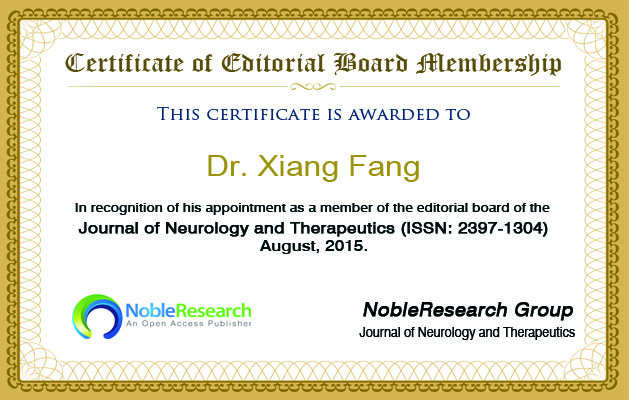
The email alerts service allows anyone who registers their email address to be notified via email when new content goes online.
Recommend this journal to your friend or library.
Manuscripts should be submitted online through our website or as an email attachment to the editorial office at editor.jde@nobleresearch.org
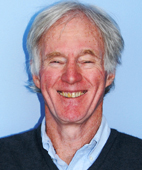
- Dr. Jack R. Wall,
- Professor,
- Department of Academic Medicine,
- University of Sydney, Nepean Clinical School,
- Nepean Hospital, PO Box 63,
- Penrith, NSW 2751,
- Australia.
- BiographyOpen or Close
Professor Jack R Wall is a Professor and heads the Discipline of Medicine and Department of Endocrinology. Before working in the University of Sydney he spent 24 years in academic positions in Canada and the US. He became a full professor at McGill University in 1988. During all of this period he has carried out basic and clinical research into Graves’ disease, the associated ophthalmopathy, and related thyroid and orbital autoimmune disorders. He is the founding Medical Director of The International Thyroid Centre, and will develop new collaborative research studies with investigators in Fiji, PNG, the Philippines and Malaysia. He is a board member of the National Graves’ disease Foundation and foundation scientific advisor, board member and co-founder of The Thyroid Foundation of Canada, the world’s first lay organization for diseases of the Thyroid. In 2004 he was given an “award of excellence” for his work with the Foundation, one of only 3 doctors in Canada so honoured. He has published more than 200 papers in peer-reviewed journals.
- ExpertiseOpen or Close
Professor Jack R Wall main area of research interest has been the eye muscle component of thyroid-associated ophthalmopathy for which he is known internationally. He was the first to focus on the autoimmune basis of ophthalmopathy and identify serum autoantibodies and to recognize the importance of the serum eye muscle antibodies as markers of eye muscle damage.
- CertificateOpen or Close
- PublicationsOpen or Close
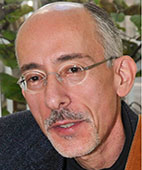
- Dr. Steven Alan Rosenzweig, Professor,
- Department of Cell and Molecular Pharmacology & Experimental Therapeutics,
- Medical University of South Carolina,
- 173 Ashley Avenue/BSB 313G, MSC 505,
- Charleston, South Carolina,
- USA.
- BiographyOpen or Close
Dr. Steven A. Rosenzweig is a Professor in the Department of Cell and Molecular Pharmacology & Experimental Therapeutics at the Medical University of South Carolina in Charleston, SC. He is also Associate Director of Shared Resources in the Hollings Cancer Center. He obtained his B.S. in Biology from the State University of New York College at Fredonia, NY, his M.S. in Physiology from Wayne State University School of Medicine in Detroit, Michigan and his Ph.D. in Physiology from the University of Toronto where he was a student in the combined Banting and Best Department of Medical Research and Department Physiology. Following postdoctoral studies in the Department of Cell Biology, Yale University School of Medicine Dr. Rosenzweig was appointed as a faculty member in the same department with a primary affiliation in the Department of Ophthalmology and Visual Science. He was recruited to the Medical University in 1991 where his lab is focused on the role of the scaffold protein NEDD9 in invadopodia formation leading to the invasion and metastasis of tumor cells.
- ExpertiseOpen or Close
SA Rosenzweig research interests are insulin-like growth factor receptor (IGF-1R) dysregulation in disease. IGF-1R receptor crosstalk to vascular endothelial growth factor (VEGF) and metastatic signaling cascades.VEGF signaling to neural precursor cell expressed, developmental down-regulated 9 (NEDD9) and invadopodia formation. IGF-binding protein (IGFBP) structure and function. Dr.Rosenzweig lab is studying the dysregulation of the IGF system in cancer. In breast cancer and head and neck squamous cell carcinoma cells. His lab is examining IGF-1R crosstalk to vascular endothelial growth factor (VEGF) signaling in mediating enhanced tumorigenicity and metastasis.Using retinal pigment epithelial cells as a model, they are studying the interplay between IGF-1R signaling and hypoxia in the regulation of VEGF production and the loss of intercellular tight junctions.
- CertificateOpen or Close
- PublicationsOpen or Close

- Dr. Jianxun (Jim) Song, Associate professor,
- Department of Microbiology & Immunology,
- Penn State University College of Medicine,
- 500 University Dr.Hershey,
- PA 17033,
- USA.
- BiographyOpen or Close
Dr. Jianxun (Jim) Song is a tenured associate professor in the Department of Microbiology and Immunology, the Pennsylvania State University College of Medicine, United States. The base of expertise on T cell biology needed to perform his research began to develop while he was a postdoctoral scholar and research scientist from the years 2001-2007 under the mentorship of Dr. Michael Croft at the La Jolla Institute for Allergy and Immunology. He became a junior faculty at The Pennsylvania State University College of Medicine in 2007, and extended his research on Developmental Immunology and Stem Cell Biology. As a PI on previous university-, foundation-, or NIH-funded grants, he laid the groundwork for the research by developing highly reactive T lymphocytes from pluripotent stem cells (PSC). His laboratory was the first to show that induced PSC differentiate into functional T cells for cell-based therapies.
- ExpertiseOpen or Close
Dr. Jianxun (Jim) Song lab is working on
1.Costimulation in T lymphocyte memory
Costimulatory signals expressed by professional antigen presenting cells (APC) are capable of promoting the formation of highly active effector T cell, which are able to develop into memory populations. However, the mechanisms by which constimlation regulates T lymphocyte memory remain uncertain. Several molecular targets of costimulation (e.g., aurora B, survivin, bcl-xL, PKB) have been identified to sustain T cell proliferation or survival, and their cooperation in promoting T cell persistence as well as tumor regression is being investigated. Findings related to this project will provide new insights into why costimulatory signals might need to be sustained over time and suggest a potential novel approach to augment cellular immunotherapy for cancer.
2. Regulation of differentiation of T lymphocytes from pluripotent stem cells
Most effort is being expended to develop and optimize strategies for utilizing highly reactive T lymphocytes from pluripotent stems cells (PSC) for cell-based therapies. Because of the plasticity and potentially unlimited capacity for self-renewal, PSC-derived immune cells have great potential in the treatment of diseases (e.g., cancers, autoimmune diseases). Antigen-specific highly reactive T cells can be generated by genetic modification of PSC with specific T cell receptor and stimulation with Notch signaling, and their therapeutic potential in the treatment of cancers and autoimmune diseases is being determined. Findings related to this project will contribute important information in the areas of vaccine design, autoimmune therapy, and immune-based anti-cancer strategies.
- CertificateOpen or Close
- PublicationsOpen or Close
- Dr. Adil I. Khan, Assistant Professor of Pathology,
- Director-Point of Care Testing,
- Temple University and Episcopal Hospitals,
- Director-Clinical Chemistry,
- Temple University Episcopal Hospital and NACC Laboratories
- Philadelphia, PA,
- USA.
- BiographyOpen or Close
He is the Director of Point of Care Testing at Temple University and Episcopal Hospitals and Director of the Chemical Pathology Laboratories at Temple University Episcopal Hospital and Northeastern Ambulatory Care Center, Philadelphia, Pennsylvania, USA. He also holds an academic appointment at Temple University School of Medicine as an Assistant Professor of Pathology. In addition to this he also is the Chair for the Philadelphia Section of the American Association for Clinical Chemistry and is an elected representative for United States in the International Federation of Clinical Chemistry and Laboratory Medicine Task Force on Point of Care Testing. He has been the recipient of the American Association for Clinical Chemistry Recognition Award in 2007, 2008, 2009, 2010, 2012 and 2013.
- ExpertiseOpen or Close
His research interests includes: Role of adhesion molecules in leukocyte trafficking in health and disease,Markers of inflammation,Diabetes: point of care testing,Method/instrument evaluations.
- CertificateOpen or Close
- PublicationsOpen or Close
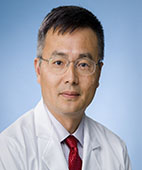
- Dr. Xiang Fang, Associate Professor,
- Department of Neurology,
- Director-UHC and TDC Neurology Clinic,
- Department of Neurology & The Mitchell Center for Neurodegenerative Diseases,
- University of Texas Medical Branch (UTMB),
- Galveston, TX 77555, USA.
- BiographyOpen or Close
Dr. Xiang Fang is an Associate Professor and the Medical Director of UHC and TDC Neurology Clinic in the Department of Neurology and The Mitchell Center for Neurodegenerative Diseases at the University of Texas Medical Branch. He obtained his MD, and PhD Degree in Pharmacology from Hunan Medical University in 1985, and completed his post-doctoral training under Dr. Arthur A. Spector in Department of Biochemistry, University of Iowa in 1998. He has been working in the field of lipid, peptides and glucose metabolism (PPARγ, inducible cyclooxygenase, lipid peroxidation etc), inflammation, and reactive oxygen species (ROS) for over 15 years. Currently his research focuses on 1) Alcohol-induced neurodegeneration; 2) Mitochondrial dysfunction in myotonic dystrophy type 1; 3) DNA damage triggers signal pathway in trinucleotide repeats associated neurodegenerative diseases (Huntington’s disease, SCA etc.); 4) Fatty acids and endogenous cannabinoids in CNS. He received Scientist Development Award from American Heart Association (AHA), and Physician Scientist Award (K02) from National institute of Neurological Disorders and Stroke (NINDS). He published more than 50 Original Publications, 7 Review articles. He has served as an Editorial Board Member for ten international peer-review Journals, and as a reviewer for 22 international peer-review Journals.
- ExpertiseOpen or Close
Role of PGC-1α in the pathogenesis of Myotonic dystrophy type 1 (DM1); Redox regulation and ATM signaling in DM1;Therapeutic trial of anti-oxidant therapy in DM1;Alcohol-induced mitochondrial dysfunction & neurodegeneration: Role of PGC-1alpha; DNA damage vs. repair in trinucleotide repeats ssociated neurodegenerative diseases (Huntington’s disease, SCA etc.); Fatty acids and endogenous cannabinoids in CNS.
- CertificateOpen or Close
- PublicationsOpen or Close




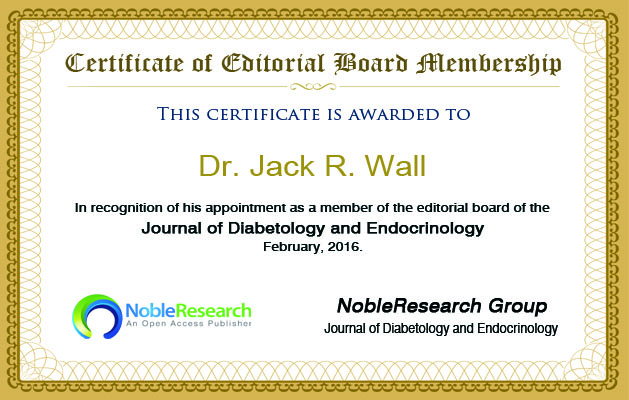
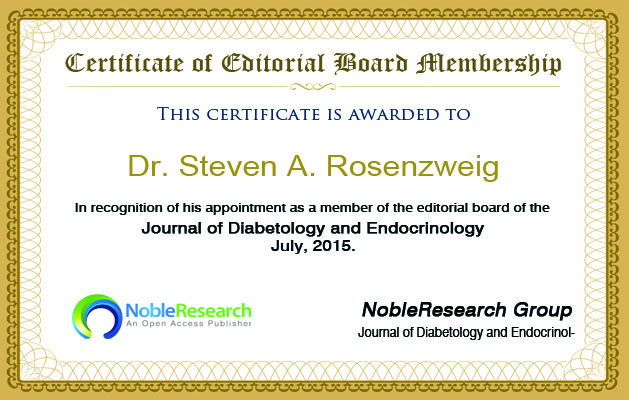
 Songf JDE-JPEG.jpg)

